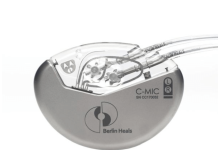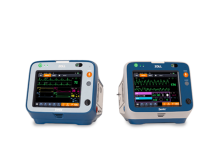Caristo has announced that a study demonstrating that its AI CaRi-Heart technology can predict cardiac events due to coronary inflammation at least ten years in advance has been published.
Caristo’s CaRi-Heart technology is an AI-assisted diagnostics and risk prediction tool that is designed to support the diagnosis of coronary artery disease and offer an improved prediction of disease risk. It analyses cardiac computed tomography angiography (CCTA) scans of patients visiting rapid-access chest pain clinics. This analysis enables healthcare professionals to improve their patient’s cardiac risk evaluation for optimising medical management.
Related: Dopavision sees success from early-stage Myopia app trial
The data, published in The Lancet, shows that among patients undergoing CCTA, over 80% without obstructive CAD [coronary artery disease] experienced twice as many fatal and non-fatal cardiac events.
The CaRi-Heart FAI-score – which determines the risk of cardiac mortality caused by coronary inflammation – predicted these events independently of traditional risk factors and clinical assessments for up to ten years. The CaRi-Heart risk score outperformed other clinical scores and changed management decisions in 45% of cases, targeting previously undetected coronary inflammation.
The ORFAN study (NCT05169333) analysed results from the first 40,000 patients enrolled in the “ORFAN” registry, the world’s largest study that evaluates CCTA imaging biomarkers in predicting long-term cardiovascular outcomes, according to Caristo.
Caristo’s chief medical officer Keith Channon said: “Coronary inflammation is a crucial piece of the puzzle in predicting heart attack risk. We are excited to discover that CaRi-Heart results performed exceptionally well in predicting patient cardiac events. This tool is well positioned to help clinicians identify high-risk patients with seemingly ‘normal’ CCTA scans.”
In April 2023, Caristo raised £13m ($16.3m) in a Series A financing round led by Oxford Science Enterprises to advance its CaRi-Heart technology. In July 2023, the company announced that it was deploying its CaRi-Heart technology in National Health Service (NHS) hospitals in the UK, as part of the new coronary artery disease management pathway pilot.
The use of AI to help detect heart problems is a growing sector. Earlier this month, HeartBeam presented data demonstrating that its HeartBeam AI applied to vectorcardiography technology outperformed an expert panel of heart rhythm cardiologists in detecting atrial flutter.




